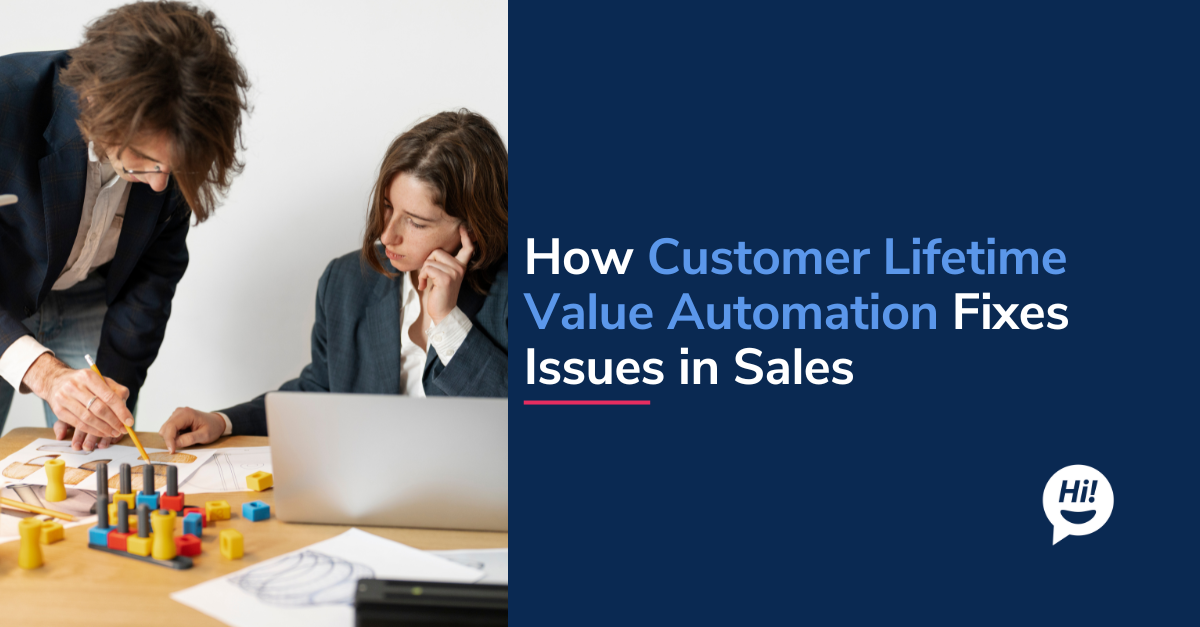Mortgage leads are the lifeblood of any thriving mortgage business. These leads represent potential customers who have shown interest in purchasing or refinancing a home, and it's essential to follow-up with them promptly and effectively to convert them into clients. Consider follow-ups like planting and nurturing a seed until it blossoms into a beautiful flower. Just as a seed needs the right conditions to grow, a lead requires follow-ups, attention, information, and support to convert into a paying customer.
In this article, we'll share 15 best follow-up practices to cultivate your mortgage leads to blossoming customers:
1. Don't Let Your Leads Go Cold.
When it comes to following up with mortgage leads, time is of the essence. Imagine a lead as a hot pizza; the longer you wait to reach out, the colder and less appetizing it becomes. So, respond within minutes or at least an hour after receiving the lead's message. We know the hustle and bustle of the mortgage world, and sometimes you can be busy to reply quickly. In such a case, set an automated message saying you will reach out soon. This will show the lead that you're responsive, eager to help, and value their time, which can be a significant deciding factor in their mortgage journey. Remember, in the mortgage industry, time is money, and the early bird catches the worm!
2. Meet Your Leads Where They Are.
In this world of multichannel platforms, you must understand your leads' favorite methods of communication and reach out to them on their preferred platform, whether by email, text, phone, social media, or in person.
For example, if you receive a lead who has filled out a contact form on your website, follow up with them via the email address they provided. This way, you can build trust and credibility, thus, increasing the chances of them working with you and, ultimately, closing the mortgage deal.
Pro Tip: You can use an omnichannel platform such as Botsplash to streamline all the multichannel platforms so that you can meet your leads where they are.
3. Personalization Is Key.
Personalization is essential when it comes to nurturing leads. Rather than treating them as just numbers, it's vital to understand each lead as a unique individual with specific needs and preferences. By learning about their background, goals, and pain points, you can tailor your solutions to best fit their particular requirements. If a lead mentioned their desired location or type of home during your initial conversation, incorporating that information into your follow-up message can make a significant impact.
For example, by saying, "I know you're looking for your perfect beachfront property, and I'm here to make that happen," you can show that you are dedicated to helping them find the right solution.
Personalization can make a big difference in standing out among the countless follow-up emails, giving your leads the feeling that they are unique and making it much more appealing.
4. Be Persistent but Not Pushy.
Following up with leads can be time-consuming, and it's easy to give up after one or two attempts. However, persistence is essential to converting leads into clients. Keep following up until you get a response or they explicitly tell you they're not interested. But remember that it can be irritating for your leads to get constant follow-ups. So, instead of sending the same message repeatedly, you can change the tone or the subject of your message.
For example, instead of sending a message asking if they're ready to move forward, you can ask if they have any questions about the process. This will show that you are interested in their concerns and doubts and are willing to help.
In the mortgage industry, persistence pays off. In fact, statistics show that 60% of customers reject four times before moving forward. So, don't give up; keep following up and watch your leads bloom into customers.
5. Listen More Than You Speak.
The mistake most salespeople make is talking more than listening. Pull up that UNO reverse card and listen more. Extra listening allows you to focus on understanding their needs and concerns, and you'll be able to gather important information about the lead's situation, which will help you to tailor your follow-up and your mortgage services to better meet their needs.
Also, ask open-ended questions such as "Can you tell me more about your current mortgage situation?" or "What are your goals for your mortgage?". Let the leads talk about what they need so that you know what you can offer.
6. Build Rapport.
Building rapport is more than just small talk; it's about creating a human connection. Take the time to understand the lead's needs, interests, and preferences, and use open-ended questions and active listening to build a relationship that goes beyond the surface.
You can also use your rapport-building skills to anticipate the lead's needs and tailor your communication accordingly. For example, if you know the lead is a busy professional, you can offer to schedule a call after-hours as convenient. Flexibility in your schedule will show the prospect that you respect their time and are willing to go the extra mile to help them.
By bonding on a personal level, you'll be able to build trust and create a sense of comfort that makes the lead more likely to do business with you. The mortgage industry is all about building long-term relationships, and building rapport is the foundation of that relationship. So, take the time to get to know whom you're communicating with and watch your relationship grow.
7. Be Resourceful.
Providing helpful information and resources to the lead, even if they're not ready to move forward with the process, can be a great way to establish trust and position yourself as an expert in the field.
For example, you can provide the lead with information about different mortgage options, the process of getting pre-approved, or the documents required for the application.
By providing helpful information and resources, you are also differentiating yourself from other mortgage professionals who may not be as forthcoming with info. This helps the lead to feel more comfortable and confident in the process and ultimately increases the chances of conversion.
8. Leverage the Power of the CRM.
A CRM is like a cheat sheet to help you keep track of your leads and their status in the process. With a CRM, you can easily see which leads you've contacted, when you last spoke with them, and their current status. It can also help you automate tasks like sending follow-up emails or making calls. You can also schedule reminders to follow up with a lead after a certain period. This can save you time and help you stay organized.
As a result, you can keep track of leads and streamline your follow-up process by leveraging the power of the CRM. Let it do the manual work for you so that you can focus on creating creative strategies to convert more leads.
9. The Power of the Right Time.
You cannot follow up on a lead at 2:00am in the morning and expect their reply. Everything has the right time, and so have the follow-ups. Thus, it's crucial to figure out the right time for follow-up and schedule them when the lead is most likely to be available and receptive.
For example, if your lead is a stay-at-home parent, it would be best to reach out during the day, whereas if your lead is a busy professional, it would be best to reach out in the evening or on weekends when they're more likely to have free time.
By following up at the right time, you are showing the lead that you value their time and are dedicated to helping them through the process. It also allows you to be more efficient in your communication and increases the chances of converting the lead into a customer.
10. Leverage the Power of Email Automation.
Email automation allows you to set up automatic email responses to leads, which can keep them updated on the process and provide them with helpful information.
For example, you can set up an automatic email response sent to a lead immediately after submitting an application. This email can thank them for their interest and provide information about the next steps in the process.
You can also use email automation to send personalized and targeted messages to specific segments of your leads based on their interests, location, or other criteria. This will increase the chances of getting a response and make your communication more relevant.
11. Consistency Is Key.
As consistency is vital, it's crucial to establish a regular schedule for reaching out to your mortgage leads. With a regular schedule, you'll be able to stay top-of-mind with your leads. This will also enable you to monitor the lead's interest and make necessary adjustments in your follow-up strategy.
For example, if you decide to follow up with your mortgage leads every week, you could set aside a specific day to make phone calls, send emails, or send text messages to your leads.
By being consistent and sticking to your schedule, you'll be able to build trust and credibility with your leads, which will increase the chances of them working with you.
12. Short but Impactful Emails.
Let's be honest; your lead probably has many follow-up emails in their inbox. Thus, ensure your follow-up emails are short and straight to the point. Rather than sending newsletter-style emails or lengthy sales pitches, keep your follow-up messages brief and focused on the next step - whether it's scheduling a demo or arranging a meeting. Also, make sure you have a strong subject line that stands out in the inbox. With a clear and direct approach, you'll be able to capture their attention and move the conversation forward in a meaningful way.
13. Follow Up With Leads Who Didn't Qualify.
Not all leads will qualify for a mortgage, but that doesn't mean they're not still in the market. It's essential to follow up with these leads to see if their situation has changed.
For example, a lead may have been denied a mortgage due to credit score issues, but with time, they may have improved their credit score. Or perhaps, the lead may have been refused a mortgage due to income requirements, but now they may have found a co-signer or have a higher income.
By following up with leads who didn't qualify, you can keep the relationship alive and have a movers advantage. Most mortgage companies don't follow up with leads that didn't qualify, which is a huge blunder.
14. Sweeten the Deal.
Consider offering a discount or special promotion to incentivize a lead to move forward in the mortgage process. This can be a powerful motivator for leads on the fence about working with you. By offering a promotion or discount, you're providing a benefit that can help to seal the deal.
For example, you could offer a discounted rate on closing costs or a waived application fee for leads who work with you within a specific timeframe. Or you could provide a special promotion such as a gift card or other rewards for leads who close a mortgage deal with you.
It's also important to consider the lead's needs and preferences. Some leads might be looking for a lower interest rate, while others might look for a faster closing process. By understanding the lead's needs, you can offer an incentive that will be most appealing to them and increase their chances of working with you.
15. Don't Be Afraid to Ask for Referrals.
Using referrals is a great way to generate new leads in the mortgage process. Referrals are when satisfied clients recommend you to their friends, family, or colleagues. These referrals can be precious because they come with a level of trust and credibility that you may not have with a new lead.
For example, after closing a mortgage, you can send a thank you note or an email asking if they know anyone who could benefit from your services. You can also include a referral card or a referral program that rewards clients for referring their friends and family to you.
Conclusion
In conclusion, the secret to mortgage success lies in mastering the art of follow-up. By understanding your leads' needs, preferences, and communication methods, and building trust and rapport, you can open the doors to more closed deals. Remember to be consistent, authentic, and attentive in your follow-up, and you'll be well on your way to closing more mortgage deals than you ever thought possible. Also, leverage the power of technology and utilize a CRM tool and an omnichannel platform like Botsplash to streamline the process and make your follow-up more efficient.
To learn more about Botsplash click the button below to schedule a demo with our team.






